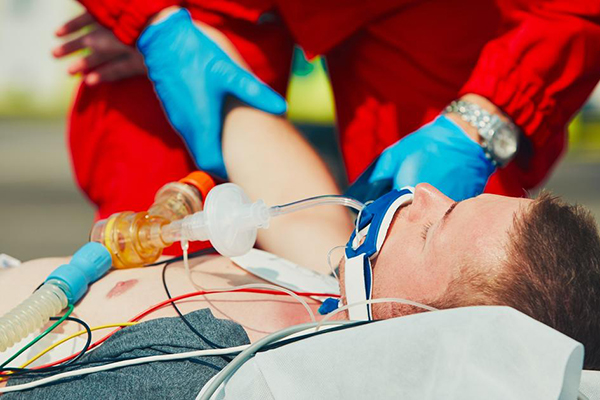This comprehensive online ACLS course is designed for healthcare professionals who manage cardiovascular emergencies. The course covers advanced skills in recognizing and responding to cardiac arrest, stroke, and other life-threatening conditions. Participants will learn to lead and support resuscitation efforts using high-quality CPR, airway management, and advanced pharmacology. With scenario-based training and guidelines from the American Heart Association, this course prepares learners for real-world emergencies, equipping them with the confidence and knowledge to improve patient outcomes. Ideal for doctors, nurses, paramedics, and other advanced healthcare providers.
Course Objectives:
- Learn to recognize and manage patients experiencing cardiovascular emergencies such as cardiac arrest, stroke, and acute coronary syndromes.
- Master advanced skills in performing high-quality CPR and using defibrillation techniques.
- Develop proficiency in airway management and ensuring adequate ventilation during resuscitation efforts.
- Understand advanced pharmacology and the use of medications in cardiovascular emergencies.
- Gain expertise in rhythm recognition and the appropriate treatment for arrhythmias.
- Learn to lead and coordinate effective resuscitation teams using communication and leadership skills.
- Understand the ACLS algorithms and protocols based on the latest American Heart Association (AHA) guidelines.
- Develop the ability to assess and stabilize critically ill patients in pre-hospital and hospital settings.
- Learn post-cardiac arrest care and strategies to improve patient outcomes after resuscitation.
Who Should Enroll:
- Physicians: General practitioners, emergency medicine doctors, cardiologists, and critical care specialists.
- Nurses: Registered nurses (RNs), nurse practitioners (NPs), and critical care nurses working in emergency, ICU, and cardiac units.
- Paramedics and Emergency Medical Technicians (EMTs): First responders in pre-hospital settings.
- Physician Assistants (PAs): Involved in managing acute cardiovascular conditions.
- Medical Students and Residents: Healthcare professionals in training, particularly in emergency medicine and critical care.
- Respiratory Therapists: Those involved in airway management and emergency care.
- Healthcare Providers: Anyone responsible for direct patient care in emergency or critical care settings.
